- Last Updated: December 16th, 2025
Key Takeaways
Mental Health Effects: Social media can lead to social comparison, FOMO, cyberbullying, addiction, distorted reality, and disconnection from real-life interactions.
Consequences: Excessive social media use can result in depression, sleep deprivation, anxiety, and decreased attention span.
Solutions: Taking a social media break can improve mental health, and legal support is available for those seriously harmed by social media.
Social Media Seriously Harms Your Mental Health
Social media has become such an integral part of life that little weight is given to how it seriously harms your mental health.
Without a doubt, social media has enabled us to stay connected with those we love.
It has even allowed us to access a wealth of information, from news content to product reviews.
In short, social media does confer several benefits.
However, the impact social media has on mental health has grown apparent over the past few years.
From FOMO to potentially triggering messages on your Instagram feed or inbox, the dangers of social media abound.
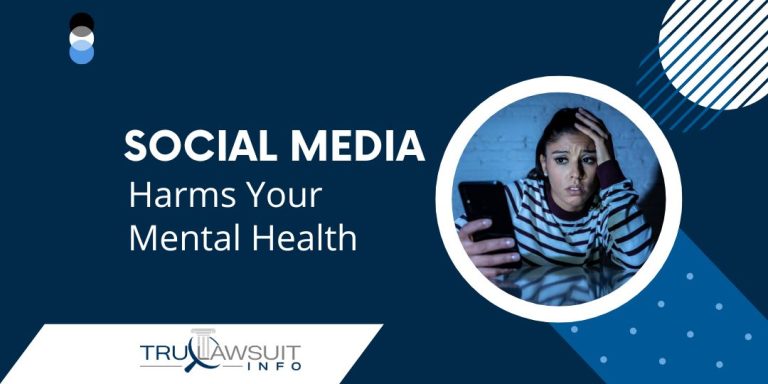
Worse yet, social media’s negative impact on mental health is harming the most vulnerable populations — young adults who are followers and users.
In short, we can no longer ignore the fact that social media can seriously harm the quality of your mental health.
Read on to learn more about the mental health harms of social media in 2023.
The Serious Hidden Dangers of Social Media: How Social Media Seriously Harms Your Mental Health
When you think about how social media seriously harms your mental health, you must look at the conditions that this technology creates.
In particular, you must understand what occurs when young followers or social media users use sites like Facebook and Instagram for hours on end.
Here are some of the hidden dangers of prolonged social media site usage.
Social Comparison
An inevitable consequence of social media use is seeing users.
Many users post various types of content online, from body transformations to details of their last iPhone purchase.
While there’s nothing inherently wrong with this model, users may fall victim to comparison.
As a result, they may either do their utmost to keep up or, worse, experience envy and self-loathing.
Fear of Missing Out
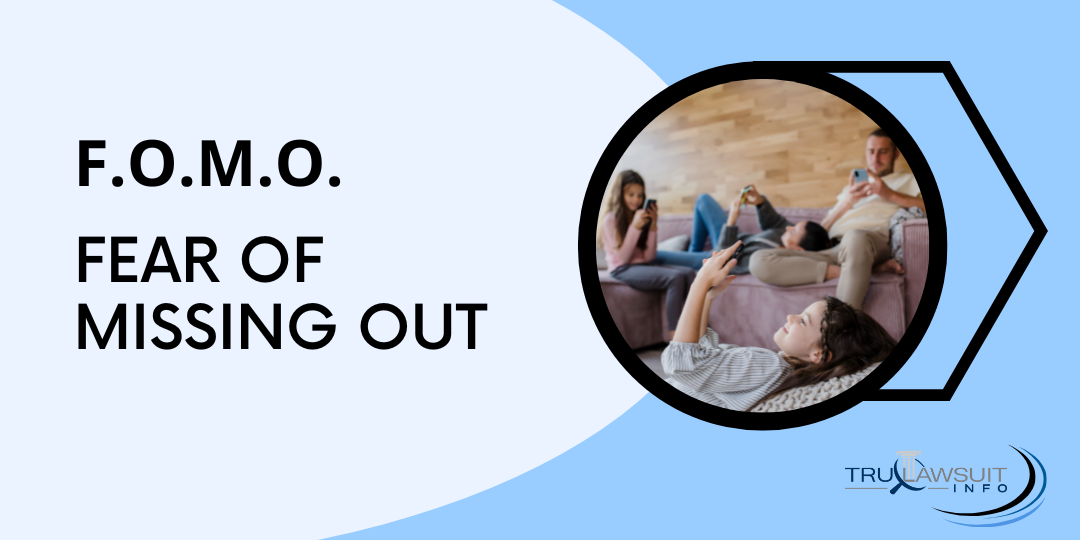
The fear of missing out (FOMO) is a phenomenon discovered in 2004.
It’s characterized by feelings that other people are having rewarding experiences that you do not have.
FOMO comes into play when you see social media posts of people you know having pleasurable experiences you wish you can have.
These experiences can range from shopping sprees to body and style transformations.
It can even include photos of your friends being in seemingly healthy and fulfilling relationships.
Seeing these types of posts can create feelings of despair and self-loathing, especially if you are currently in a difficult position in life.
Cyberbullying on Social Media
Unlike social comparison or FOMO, cyberbullying is deliberate.
Often, instances of cyberbullying occur following social media posts.
Other users can read the posts and comment negative remarks in response to the message in said post.
Cyberbullying can have a negative impact on a person’s mental health and self-esteem.
According to the Cyberbullying Research Center, the people who are most vulnerable are often young adults and adolescents.
Social Media Addiction
Every social media platform bombards users with an endless stream of media.
The endless delivery of photos and videos creates a novel stimulus for users.
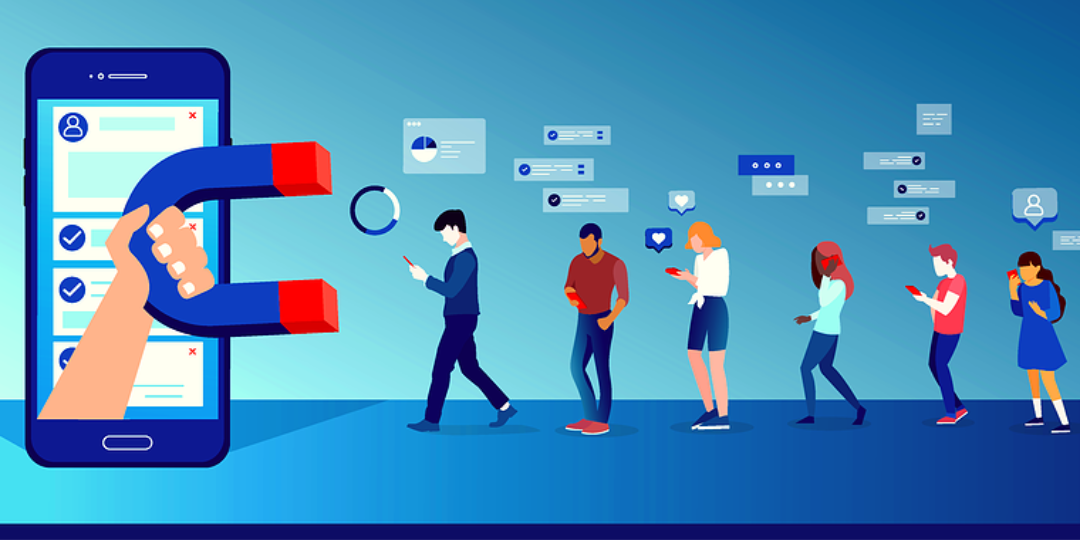
As a result, these platforms keep their customers and users hooked, and users develop social media addiction.
Social media addiction is a complex phenomenon.
For the most part, it develops because of the vast options of content social media platforms give users.
With an endless array of media to choose from, social media users scroll endlessly for hours.
Over a long period, users develop social media addiction as they consistently consume content from their platform of choice.
Social media addiction starts once you develop an unconscious urge to check your phone for a direct message (DM) or the latest social media update.
Once you can’t cease the habit, you may need a mental health intervention or a social media break to regain control over your online habits.
Distorted Perceptions of Reality
Social media seriously harms your mental health by blurring the lines between reality and what’s shown online.
Long-time users of social media may develop a distorted or false sense of reality, where they confuse what’s online with how things are in reality.
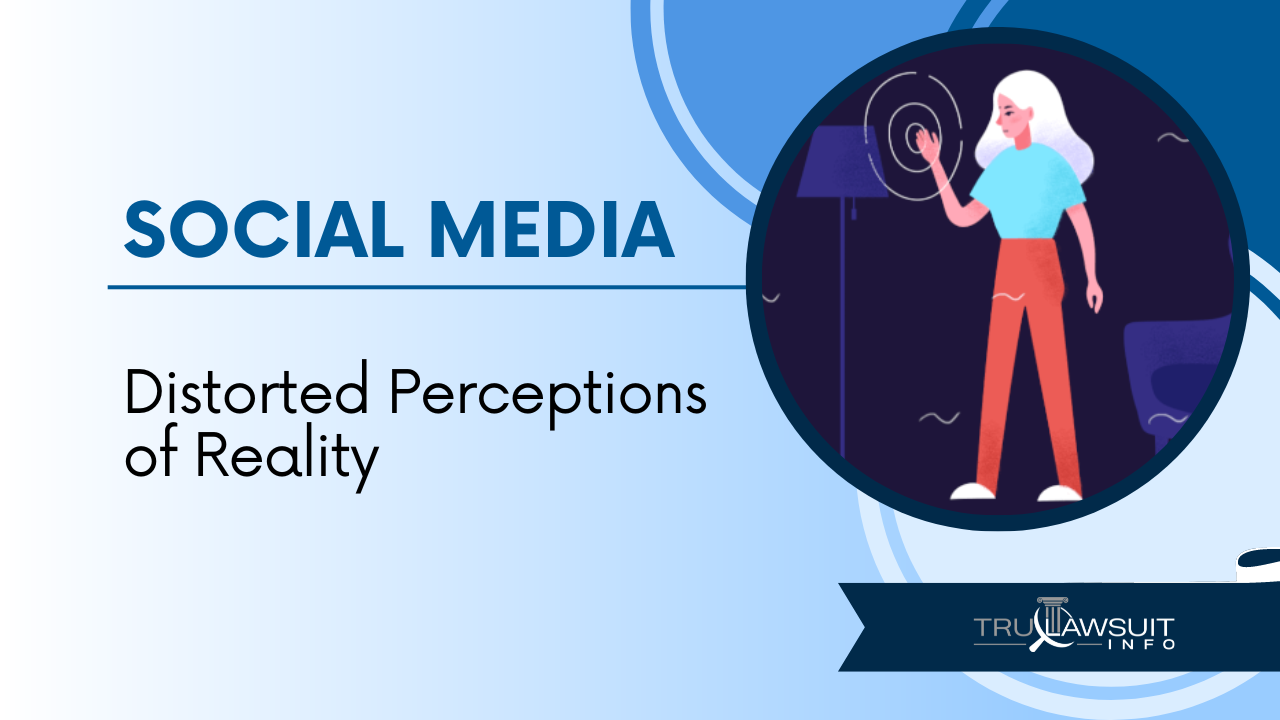
This is especially the case with young social media users who try to emulate their favorite social media models.
Disconnection From Real People
Lastly, social media seriously harms your mental health by taking you away from your friends and family.
Ironically, social media enables you to stay in touch with people.
However, the connection with people online can come at the expense of the time and money being spent with real people.
Even if you’re at a family or business gathering, social media use can keep you glued to your mobile phone.
This creates a situation wherein you’re physically present but mentally engaged elsewhere.
If left unaddressed, using social media becomes a habit that cuts you off from everyone around you.
From Likes to Self-Loathing: Social Media and Depression
One of the ways social media seriously harms your mental health is by causing you to develop depression.
While it’s unclear how social media does this, several studies have confirmed the link between depression and social media.
The difference was definitive
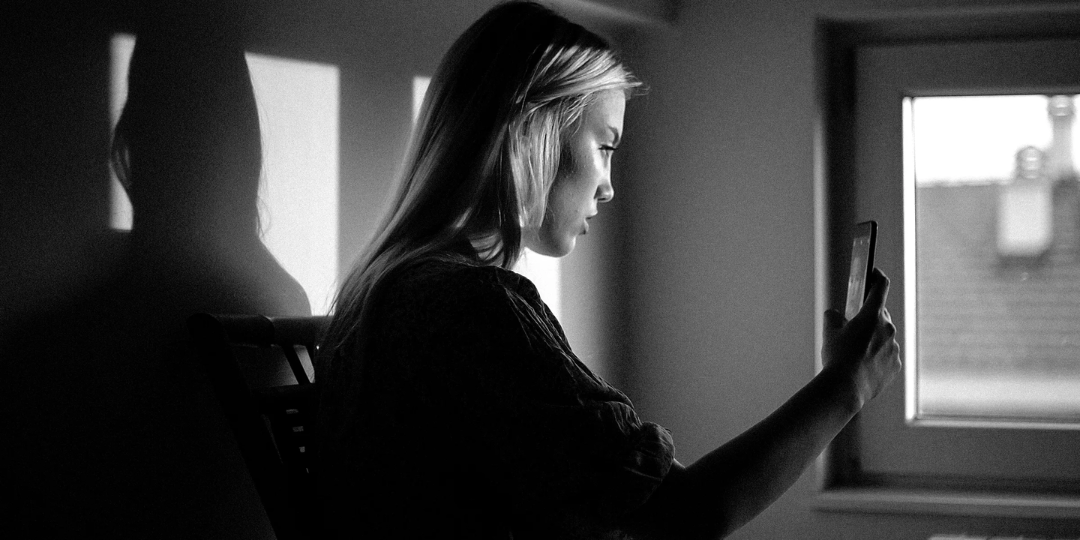
Over the course of the study, the group that ceased social media activity reported feeling less lonely and expressed significant improvements in mood and overall life satisfaction.
The study’s participants were 143 undergraduate students, so questions about whether or not the study’s findings are applicable across the board do arise.
Nevertheless, we can’t deny the link that exists between prolonged social media exposure and symptoms of depression.
Overstimulation and Sleep Deprivation: The Devastating Price for Excessive Social Media Usage
Social media seriously harms your mental health on different levels.
Besides affecting you psychologically, it also takes a toll on your sleep.
There are many theories behind this, but the two most widely acknowledged involve overstimulation from novel stimuli and phone use.
Social media affects the quality of sleep because it exposes you to various types of new stimuli.
When you get on a social media platform, you see different photos, videos, and other types of media that can keep you on your screen for hours.
As you scroll, you’re introduced to a new photo or video.
As time passes, you will have lost several hours of sleep just staying on Twitter, Facebook, or Instagram.

Another way social media seriously harms your mental health is with prolonged screen time.
Often, people use social media on their phones.
Using your phone during the day is fine.
However, when you use your phone at night, you expose yourself to blue light from the phone screen.
According to the Sleep Foundation, blue light affects circadian rhythms.
The light tricks the brain into thinking that it’s still daytime.
This prevents the brain from secreting melatonin, the neurotransmitter that induces sleep.
As a result, you may forget that it’s your bedtime as you scroll on social media.
In short, social media won’t only harm you psychologically, prolonged usage and exposure may also cost you your sleep.
Anxiety and Social Media Exposure
As mentioned earlier, FOMO is one of the effects of chronic social media use.
When users stay on social media for hours, they see the lives of other people — lives they may envy and find more desirable.
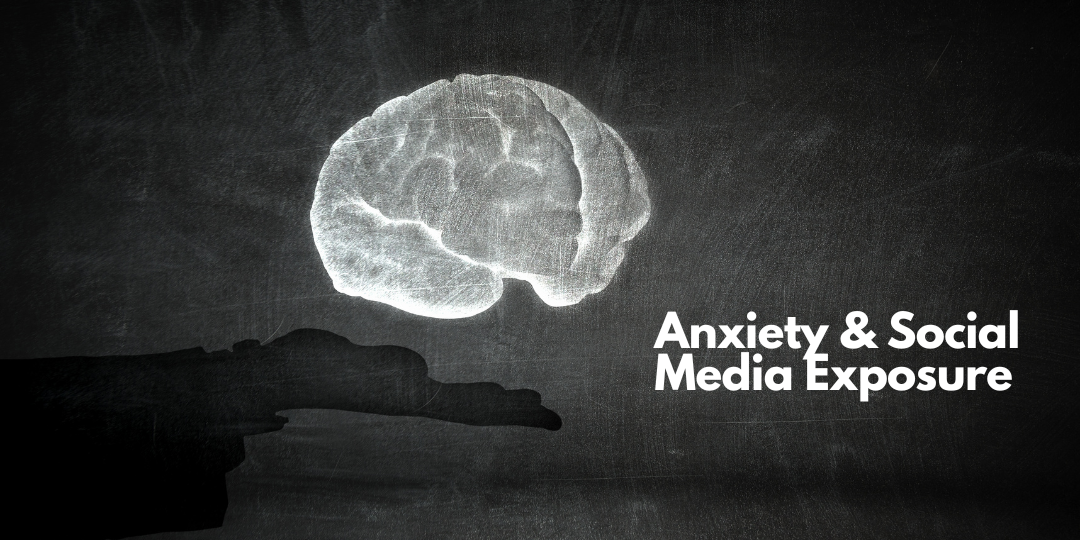
As a result, users develop feelings of inadequacy.
If left unaddressed, these feelings can turn into full-blown psychological problems, like depression and anxiety.
The Price of Social Media Exposure: Paying Attention Less
Social media seriously harms your mental health by aggravating symptoms of anxiety and depression.
It also harms your mental health by affecting how you sleep.
All of these effects can compound and negatively impact your ability to maintain focus.
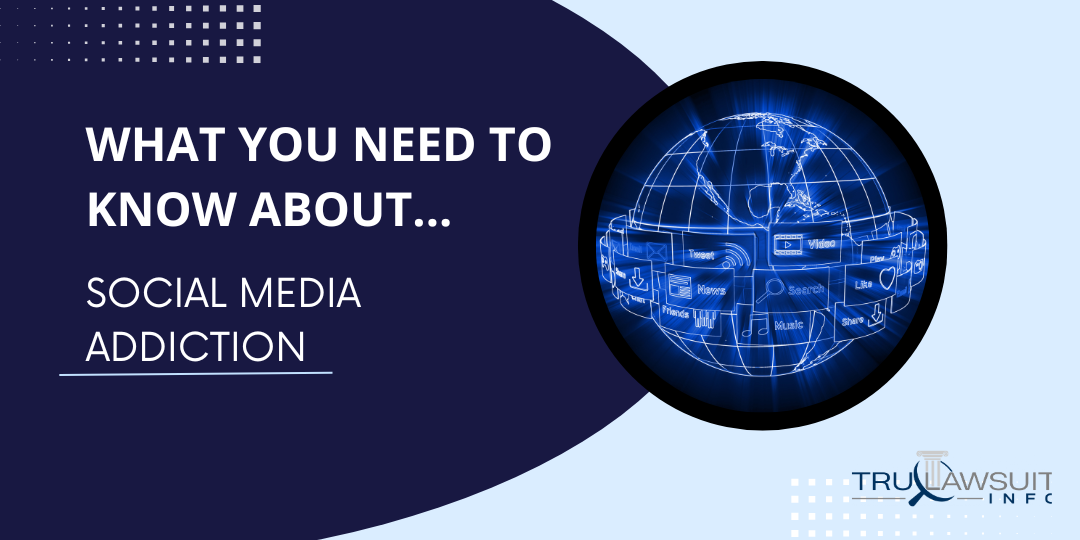
A shorter attention span is another result of chronic social media exposure.
When you check you check your social media account, you get the same dopamine effect you get when you shop online and read product reviews.
You scroll endlessly at different posts and media in the same way you compare one brand with another.
What does this lead to?
Endless scrolling creates a habit where you jump from one stimulus to another without focusing on just one.
This bleeds over to your attention span when you’re off social media.
There Is Hope: Take Responsibility for Your Mental Health by Taking a Social Media Break
We now know that social media seriously harms your mental health in several ways.
Now it’s time to consider what you can do about it.
To improve your mental health, you can take a social media break.
Social media breaks are periods where you abstain from all social media activity.
During your break, you should not access or open your social media accounts.
Elsewhere, we’ve talked about the mental health benefits of taking a break from social media.

When you unplug from social media, you’ll find that your overall life satisfaction and the quality of your sleep cycle will improve.
With these improvements come other noticeable positive changes in your mood and relationships.
You can disconnect from social media permanently or take a temporary break from it and see how you feel.
If you choose the latter, it’s expected that you’ll experience many positive changes in just a week, almost as if a weight was removed from your shoulders.
Has Social Media Harmed Your Mental Health? Contact Us for Support
Social media seriously harms your mental health in several ways.
However, you can take control of your mental health by taking a break from social media use.
Taking control of your mental health and social media habits isn’t easy.
You may want to consider holding those behind social media responsible.
If social media has seriously harmed your mental health, let’s talk.
Reach out and find out if you qualify for a social media mental health case today.

Attorney Jessie Paluch, founder of TruLawsuit Info, has over 25 years of experience as a personal injury and mass tort attorney, and previously worked as an international tax attorney at Deloitte. Jessie collaborates with attorneys nationwide — enabling her to share reliable, up-to-date legal information with our readers.
Legally Reviewed
This article has been written and reviewed for legal accuracy and clarity by the team of writers and legal experts at TruLawsuit Info and is as accurate as possible. This content should not be taken as legal advice from an attorney. If you would like to learn more about our owner and experienced injury lawyer, Jessie Paluch, you can do so here.
Fact-Checked
TruLawsuit Info does everything possible to make sure the information in this article is up to date and accurate. If you need specific legal advice about your case, contact our team by using the chat on the bottom of this page. This article should not be taken as advice from an attorney.
You can learn more about the Social Media Harm Lawsuit by visiting any of our pages listed below:
Here, at Tru Lawsuit Info, we’re committed to helping victims get the justice they deserve.
To do this, we actively work to connect them with attorneys who are experts in litigating cases similar to theirs.
Table of Contents
Tru Lawsuit Info is a reliable source of information about issues that may affect your health and safety, such as faulty products, data breaches, and environmental hazards.
Our team of experienced writers collaborates with medical professionals, lawyers, and advocates to produce informative articles, guides, and other resources that raise awareness of these topics.
Our thorough research provides consumers with access to reliable information and updates on lawsuits happening around the country. We also can connect consumers with attorneys if they need assistance.
Here, at Tru Lawsuit Info, we’re committed to helping victims get the justice they deserve.
To do this, we actively work to connect them with attorneys who are experts in litigating cases similar to theirs.
